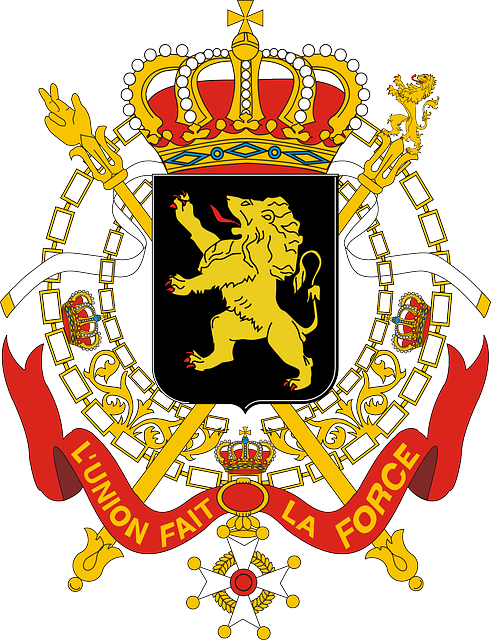In the UK, official translation services UK play a crucial role in ensuring that legal documents translated for court proceedings are both accurate and compliant with the country's high legal standards. These specialized services employ certified translators who are adept at handling complex legal language and terminology, providing translations that accurately reflect the original content. The process includes rigorous checks to ensure precision and is accompanied by a certificate of accuracy, which is essential for the acceptance of these documents in UK courts. Official translation services UK accredited by bodies like the NRSPI or the ATI/ITI are recognized as authorities in this field, ensuring that all translations meet the exacting requirements of legal processes within the UK judicial system.
When legal matters span language barriers, the importance of accurate translation surfaces. In the UK’s judicial system, where precision is paramount, certified translations play a critical role. This article delves into the essential aspects of utilizing official translation services UK within court and legal proceedings, elucidating the differences between certified and non-certified translations, and outlining the legal framework that governs such translations. Navigating the nuances of legal language translation requires expertise; thus, we explore how to identify accredited services that meet UK legal standards and the procedures for obtaining certified translations. We also address the challenges inherent in this process and the stringent validation criteria that these translations must pass before acceptance by UK courts. Understanding these components is key to ensuring effective communication and compliance within the legal system.
- Understanding the Necessity of Certified Translations in Legal Contexts within the UK
- The Role of Official Translation Services UK in Court Proceedings
- Key Differences Between Certified and Non-Certified Translations for Legal Use
- The Legal Framework Governing Translations in the UK
- Identifying Accredited Translation Services Compliant with UK Legal Standards
- Steps to Obtain a Certified Translation for Court Purposes in the UK
- Challenges and Considerations When Translating for Legal Use in the UK
- The Process of Validation and Acceptance of Certified Translations by UK Courts
Understanding the Necessity of Certified Translations in Legal Contexts within the UK

In legal proceedings within the United Kingdom, the accuracy and authenticity of translations are paramount. When documents need to be presented in court or used as evidence, they must be accompanied by certified translations from official translation services UK to ensure that they are both precise and legally recognized. These translations serve as reliable equivalents to original texts written in a different language, facilitating fair legal processes for all parties involved. The necessity of such translations arises from the need to maintain clarity and prevent misunderstandings, which could unfairly influence the outcome of cases. Official translation services UK are staffed by professional translators who are adept at providing translations that are not only linguistically correct but also compliant with legal standards set forth by the judicial system. This compliance is crucial as it confirms the translator’s competence and integrity, ensuring that every word conveys the exact meaning as intended in the original document. By utilizing these services, legal professionals can be confident that the translated content will hold the same weight and credibility as its source material, thereby upholding the integrity of the legal process.
The Role of Official Translation Services UK in Court Proceedings

When legal matters require the involvement of non-English speaking parties or documents, the precision and authenticity of translations become paramount. In the context of UK court proceedings, official translation services UK play a critical role in ensuring that all parties have equal access to justice by facilitating clear and accurate communication. These services are staffed by professional translators who are not only fluent in the languages involved but also well-versed in legal terminology, enabling them to translate documents such as contracts, witness statements, and affidavits with the necessary legal precision. The translations provided by these services are officially stamped and certified, which renders them admissible as evidence in UK courts, thereby upholding the integrity of the proceedings. This certification also prevents any ambiguity or misinterpretation that could arise from non-official translations, ensuring that legal documents accurately convey their original intent and meaning.
The reliability of official translation services UK is further underscored by their adherence to stringent quality standards and professional codes of conduct. These service providers are often associated with reputable translation bodies such as the Institute of Translation and Interpreting (ITI) or the Association of Translation Companies (ATC), which guarantee a high level of expertise and trustworthiness. Their involvement in court proceedings ensures that translations meet the exacting requirements set forth by UK law, thereby facilitating a smoother legal process and allowing for fair and just outcomes regardless of linguistic barriers.
Key Differences Between Certified and Non-Certified Translations for Legal Use

When engaging with legal documents or proceedings in the UK, the distinction between certified and non-certified translations is paramount. Certified translations, provided by official translation services UK, are rendered by professional translators who have been accredited to translate legal documents. These translations come with a statement of accuracy and a signed declaration from the translator attesting to the translated content’s complete accuracy in relation to the original document. This declaration often includes the translator’s contact information and a seal or stamp of the translation service, rendering the document fit for submission to courts and legal entities.
In contrast, non-certified translations may be performed by less specialised translators and lack the formal certification required by official bodies. While they can be suitable for personal understanding or initial review, they do not carry the same weight as certified translations within legal contexts. For documents that will be used as evidence, in court filings, or in any official capacity, it is imperative to obtain a translation that has been certified by a reputable official translation service UK to avoid complications and ensure the document’s validity. Choosing the right type of translation service from the plethora of options available in the UK is crucial for legal processes, as non-certified translations may be rejected by courts and other legal entities.
The Legal Framework Governing Translations in the UK

In the United Kingdom, the legal framework governing translations is robust and precise, ensuring that all translated documents meet the high standards required for court and legal proceedings. The Official Translation Services UK operate under a series of regulations that dictate the qualifications and procedures translators must adhere to. These services are mandated to provide translations that accurately convey the meaning of the original text without any alterations or omissions that could influence the outcome of legal matters. The Association of Translators and Interpreters (ATI) and the Institute of Translation and Interpreting (ITI) are two professional bodies whose members are often entrusted with official translations due to their adherence to stringent quality control processes and codes of professional conduct. These bodies ensure that their members are competent in both the source and target languages and are well-versed in legal terminology specific to the UK’s legal system. The use of these certified translators is crucial when documents need to be submitted as evidence in court or for use in legal proceedings, as they guarantee the integrity and reliability of the translated content. The Ministry of Justice also provides guidance on the acceptance of foreign documents and the conditions under which translations are required, emphasizing the importance of accuracy and authenticity in all official capacities. This framework not only safeguards the interests of justice but also upholds the integrity of legal processes within the UK.
Identifying Accredited Translation Services Compliant with UK Legal Standards

When navigating the need for certified translations in the UK, particularly for court and legal proceedings, it is imperative to engage with services that are officially accredited and compliant with UK legal standards. The translations required in such settings must not only be accurate but also carry the necessary certification to be accepted by courts or governmental bodies. Official translation services UK are specialized entities that possess the authorization to provide these translations, ensuring they meet the stringent requirements set forth by the relevant authorities. These services often have a list of credentials and certifications that they must adhere to, such as being registered with the relevant professional body for translators or having their translators be individually accredited. This accreditation typically involves demonstrating proficiency in both languages and an understanding of legal terminology. Choosing a service that is officially recognized not only facilitates the smooth progression of legal matters but also safeguards against potential complications due to substandard translations. When selecting an official translation service UK, it is advisable to verify their accreditation status, check for past clients’ testimonials, and ensure they provide a clear process for obtaining the required certifications along with the translated documents. This due diligence can make a significant difference in the outcome of legal proceedings that rely on precise translations.
Steps to Obtain a Certified Translation for Court Purposes in the UK

When legal proceedings are concerned, accuracy and authenticity of documents are paramount. In the UK, court-related translations must be handled by professional official translation services UK that offer certified translations. These services specialise in accurately conveying the content of foreign language documents into English or vice versa, with a certificate of accuracy attached, which is a prerequisite for the document to be accepted by courts. The process begins with selecting a reputable translation service that holds the necessary accreditation and understands the legal nuances required for such translations. The chosen service will then require the original documents to ensure precision in translation. Once the document is translated, it undergoes a rigorous review process. This includes a comparison of the source text against the translated text to guarantee there are no discrepancies. After the translation is confirmed to be accurate and complete, the translator adds a statement affirming the truthfulness and accuracy of their work. They then affix their official seal or stamp on both the translation and the accompanying certificate. This certified document is then ready to be submitted to the court, providing legal entities with the necessary assurance that the translated content is an accurate representation of the original material. It’s imperative to choose official translation services UK that are approved by relevant authorities, such as the relevant court or the UK’s National Register of Public Service Interpreters (NRSPI), to ensure the translation’s validity in legal settings.
Challenges and Considerations When Translating for Legal Use in the UK

When engaging with legal matters in the UK, the accuracy and authenticity of translated documents are paramount. Certified translations for court and legal proceedings necessitate the expertise of official translation services UK, which are well-versed in the nuances of legal language within different dialects of the English language and other languages commonly used in the UK. One of the primary challenges in this field is ensuring that translators possess a deep understanding of both the source and target languages, as well as the legal terminology unique to UK law. This requires not only linguistic proficiency but also familiarity with legal processes, which can vary significantly from one jurisdiction to another.
The certification process further complicates the task. Official translation services UK must provide translations that meet stringent standards set by the UK’s courts and tribunals. These translations must accompany an official certificate or statement attesting to the accuracy of the content and the competence of the translator. The translation process for legal documents is a rigorous one, involving multiple checks and verifications to ensure that there are no discrepancies or misunderstandings that could compromise the integrity of the legal proceedings. Choosing the right official translation services UK is crucial for navigating these challenges and ensuring that all translated materials for court and legal proceedings are reliable and admissible in a UK legal context.
The Process of Validation and Acceptance of Certified Translations by UK Courts

When legal documents require translation for court proceedings in the UK, the accuracy and validity of the translations are paramount. The process of validation and acceptance of certified translations begins with selecting a professional official translation service UK that specialises in legal translations. These services ensure that all translated documents adhere to the stringent standards set by UK courts. The translation must be complete, precise, and reflect the exact content of the original document, capturing the nuances of both language and legal terminology.
Upon completion, the certified translator affixes a statement of accuracy, declaring under penalty of perjury that the translation is true to the best of their knowledge and ability. This statement is often accompanied by a signature and seal or stamp of the translation service. Additionally, the UK courts may require an accompanying letter of credential from the translation agency, proving its certification and authority to provide such translations. Once these criteria are met, the translated documents can be submitted to the court for consideration, ensuring that the translation meets the legal requirements and is accepted as part of the proceedings.
In conclusion, navigating the legal landscape in the UK necessitates precise and authoritative communication, especially when it involves documents that require certified translations. The intricacies of legal proceedings demand translations that not only accurately convey meaning but also adhere to the stringent standards set forth by UK law. Official translation services UK play a pivotal role in this process, providing the necessary expertise and certification to ensure that all translated content stands up to scrutiny within court settings. By understanding the critical differences between certified and non-certified translations, individuals and legal entities can make informed decisions when selecting translation services. The article has outlined the essential framework and procedures for obtaining and validating certified translations in the UK, as well as the challenges inherent in this specialised field. For those engaged in court or legal proceedings, it is imperative to engage with translation services that are not only accredited but also fully compliant with UK legal standards. This guarantees the integrity and legality of translated documents, facilitating fairness and clarity within the judicial process.
